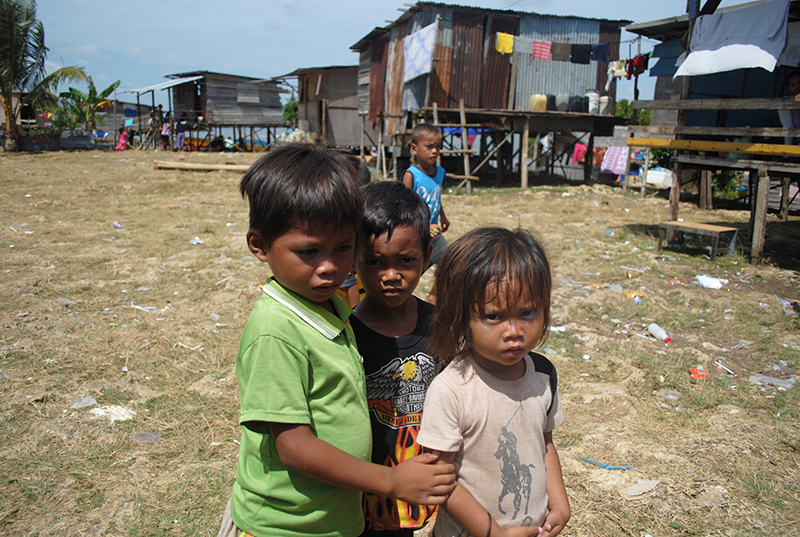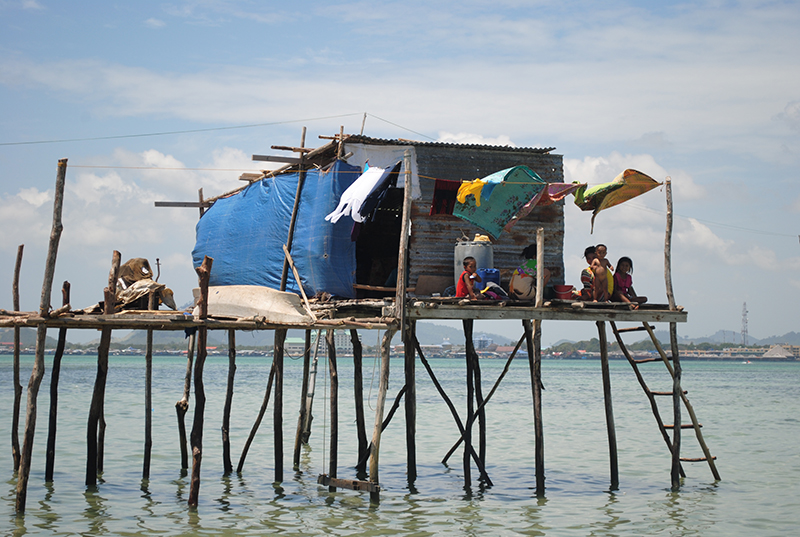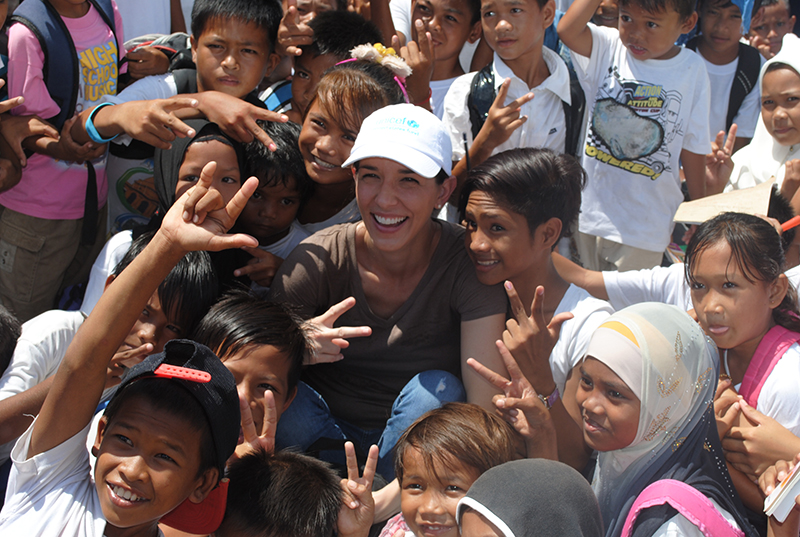I had the opportunity early this year to travel to Malaysia on a Field Visit with the U.S. Fund for UNICEF. UNICEF takes corporate partners and donors on field visits periodically to share with their dedicated partners firsthand what UNICEF does in the field. HSN Cares launched as a national sponsor of Trick-or-Treat for UNICEF in the fall of 2013 and I was invited since I manage the national and global charity partnerships for HSN Cares.
During my trip, I was reminded about a question that I was often asked at the launch of my company’s campaign for UNICEF: “What about kids in our country?” It’s a question I heard the President and CEO of the U.S. Fund for UNICEF, Caryl Stern, answer so well, as she did all questions she was asked. Caryl said that there is no doubt that there are children in the United States in need. Clearly there is a need in many places within our borders but there is also an incredible safety net of governmental and non-governmental agencies there to help. Whereas in so many countries around the world there is no safety net. There aren’t food stamps or food banks, affordable health care or free public education. And these children without a safety net are not defined by their borders, they are defined by their AGE. They are kids without a voice and it’s our responsibility to help them. Because we can.
I started my journey by learning how UNICEF assists the Malaysian government in the poorest countries in the world but also in middle income countries that are prospering economically but where the social infrastructure is slow to catch up. Because of Malaysia’s status as middle income, UNICEF works mostly in the area of public policy, attempting to influence the government in the arena of Children’s Rights. They also work closely with other non-governmental organizations (NGOs) to assist these NGOs in working directly with children.
Most of the policy work that I saw firsthand on my visit was around the education of unregistered children. These children are immigrants from poorer countries nearby Malaysia such as Indonesia and the Philippines. Because these children aren’t Malaysian, they are undocumented and therefore without access to education or healthcare. UNICEF is very focused on working with the Malaysian government to take responsibility for these children and provide them with basic rights.
The children you see here are from a community known as Sea Gypsies. This photo was taken in Lahad Datu, right after we had a beautiful dinner at a restaurant on the water. Our team was relaxed and enjoying some downtime after a long day of travel when we had the chance to meet these children.
They are some of the countless children in Malaysia who are undocumented. Meaning they have no birth certificates, no access to healthcare, no education. These kids live on the water and, historically, they have been part of the fishing industry but, in the wake of industrial fishing practices such as bombing for fish, they now represent fewer than 5% of the total fishing industry in their area.
These children live in extreme poverty like nothing I have ever seen. Young girls around 4 years old walking around completely nude were holding babies younger than 2 years of age, also without clothes on. They aren’t in a rural area; they are living on makeshift boats just 10 yards offshore of a decent sized town.
I was told a number of stories of these kids sniffing glue, right next to their parents (who aren’t educated and don’t know how dangerous it is) in order to subside hunger pains. For as little as 75 cents, dozens of kids can sniff a certain glue product and become high and ignore their hunger. There are examples of children as young as the age for 4 years doing this. This was an emotional experience for our whole group and something I was truly pained to witness.
UNICEF is advocating for these children with the Malaysian government. I know, from our own immigration struggles in the U.S., how challenging these issues can be to resolve but it’s the way to affect the most change. In middle income countries UNICEF must start at the top and encourage the government to recognize undocumented children, provide them with registration upon birth and access to basic education and healthcare. NGOs cannot bear the responsibility of these practices long-term and UNICEF’s position is that governments must take responsibility for their own.
It’s a long road to travel but it reminds me that we must “teach someone to fish” instead of “giving someone a fish”.
For more information on the U.S. Fund for UNICEF and how they are rated by some respected charity watchdog agencies, visit their website or their rating on Charity Navigator or the Better Business Bureau.










